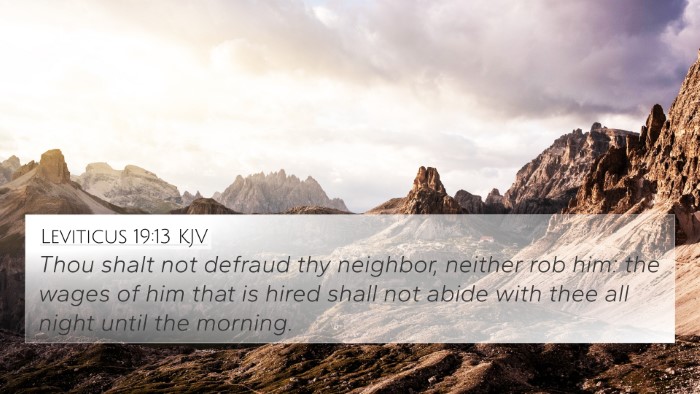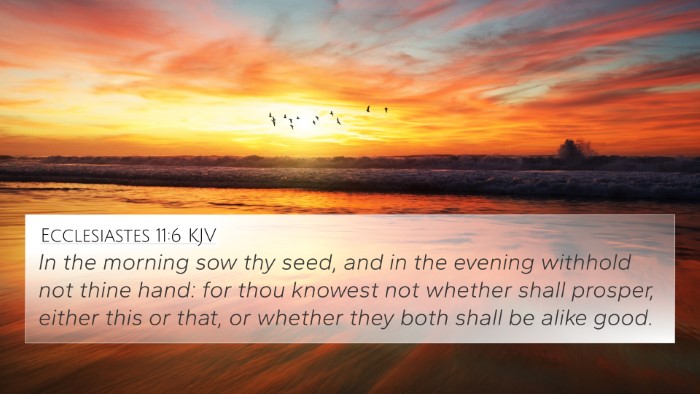Meaning and Interpretation of Proverbs 3:28
Proverbs 3:28 states: "Say not unto thy neighbour, Go, and come again, and to-morrow I will give; when thou hast it by thee." This verse emphasizes the importance of promptness and integrity in our dealings with others. Below, we explore the interpretations and meanings from several public domain commentaries.
Insights from Matthew Henry
Matthew Henry highlights that the verse calls for an immediate response to those in need. He emphasizes that procrastination, especially in helping others, can lead to distrust and disappointment. He notes that when someone requests help or assistance, one must be willing to offer support without delay, especially when the means to help are readily available.
Insights from Albert Barnes
Albert Barnes expands on the idea that the verse teaches the virtue of generosity and readiness to assist others. He argues that delaying aid when one has the ability to help is not merely unkind but can also be seen as an affront to the person seeking assistance. He also connects this principle to the broader biblical theme of love for one’s neighbor, implying that active love is expressed through timely aid.
Insights from Adam Clarke
Adam Clarke offers a cultural perspective, explaining that in ancient times, there were no safety nets such as social services. Therefore, the prompt response to one’s neighbor in need was crucial for the well-being of the community. He stresses that the expectation to act promptly reflects the character of a righteous person, who is not only concerned with their own interests but also with the welfare of others.
Key Themes in Proverbs 3:28
- Promptness in Action: The call to immediate action to assist others.
- Integrity in Relationships: Upholding trust and reliability among neighbors.
- Community Responsibility: The importance of caring for one another in society.
- Ethical Living: Aligning one's actions with the moral teachings of the Scriptures.
Bible Cross References for Proverbs 3:28
- Luke 10:30-37: The Parable of the Good Samaritan teaches the importance of helping those in need.
- James 2:15-17: Illustrates that faith without works is dead, supporting the idea of actionable love.
- 1 John 3:17: Warns against closing our hearts to those in need.
- Galatians 6:10: Encourages doing good to all, especially to the community of faith.
- Matthew 5:42: Teaches about giving to him who asks, which aligns with the message of this proverb.
- Ecclesiastes 11:4: Discusses the importance of taking action without undue hesitation.
- Luke 6:31: "Do to others as you would have them do to you," reinforcing the principle of mutual kindness.
Thematic Connections
The connections between this verse and others in the Bible create a broader understanding of the scriptural emphasis on generosity, responsibility, and the call to love one's neighbor actively. This verse serves as a reminder that in our spiritual journey, practical actions are just as crucial as our inner faith and beliefs.
Conclusion
In summary, Proverbs 3:28 serves as a profound reminder of the need for promptness and integrity in our dealings with others. By understanding this verse through the interpretations of various biblical commentators, we can appreciate its relevance in our daily lives and its connections to the wider biblical narrative of love and responsibility towards our neighbors.










